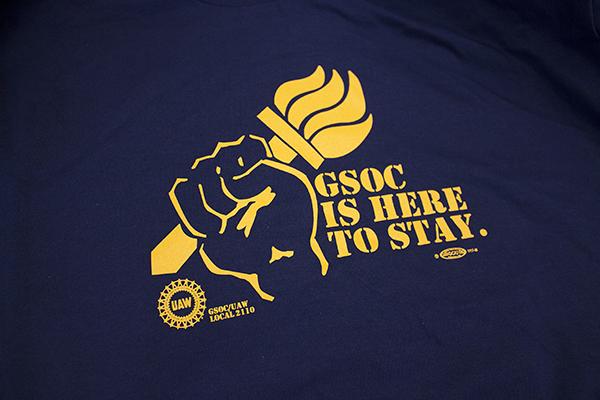The National Labor Review Board proposed a new rule last week that would redefine graduate students as nonworkers, preventing them from unionizing and participating in collective bargaining in private universities.
This proposal would overrule a 2016 decision by the NLRB that federally protected graduate student workers’ right to unionize. It will revert back to a previous classification of the graduate student and university relationship as “predominately educational rather than economic,” the NLRB said in a press release. Due to the NLRB’s jurisdiction over the private, not public, sector, only private universities would be affected. In comparison, graduate student workers at public universities have been unionized for decades.
If passed, this rule change would be a major blow to organized labor across private college campuses, who have been fighting for recognition for the last 20 years. NYU’s own graduate student union, the Graduate Student Organizing Committee or GSOC, was the first to emerge among private universities after the NLRB mandated NYU recognize it in 2000.
Since the NLRB’s 2016 decision, 15 universities have held union votes and four gained union contracts, according to The Chronicle for Higher Education.
In a statement, GSOC said they expect NYU to continue to recognize them whether or not the proposal is passed.
“[T]he union of NYU’s graduate workers, and NYU have a legal agreement that guarantees union recognition and our right to collective bargaining regardless of any decision by the [NLRB],” the statement reads. “We therefore anticipate good faith negotiations with the NYU administration for a new union contract next year when our current contract expires.”
It is unclear if NYU will participate in good faith negotiations — under the George W. Bush administration, the NLRB passed a similar proposal to the one being considered now, which NYU cited to discontinue negotiations after GSOC’s first contract with the university expired.
In a statement, university spokesperson John Beckman said that the ruling would not affect NYU’s relationship with GSOC.
“At the moment, there is a collective bargaining agreement in place, and no decision by the NLRB would have an impact on that contract,” Beckman said. “ And, at this point, we don’t see the proposed NLRB rule as having an effect on our proceeding with a new agreement at the expiration of the current one.”
GSOC strongly condemned the NLRB’s proposed rule, describing it as a highly partisan abuse of power and maintaining that the multitude of work graduate students do classifies them as workers deserving of collective bargaining rights.
In their statement, GSOC encouraged NYU to continue to recognize them, reminding the university of past conflicts during their fight to be recognized.
“After all, the time with the greatest labor disruptions at NYU was the time when NYU refused to negotiate with GSOC,” the statement reads.
Email Matthew Fischetti at [email protected].

























































































































































